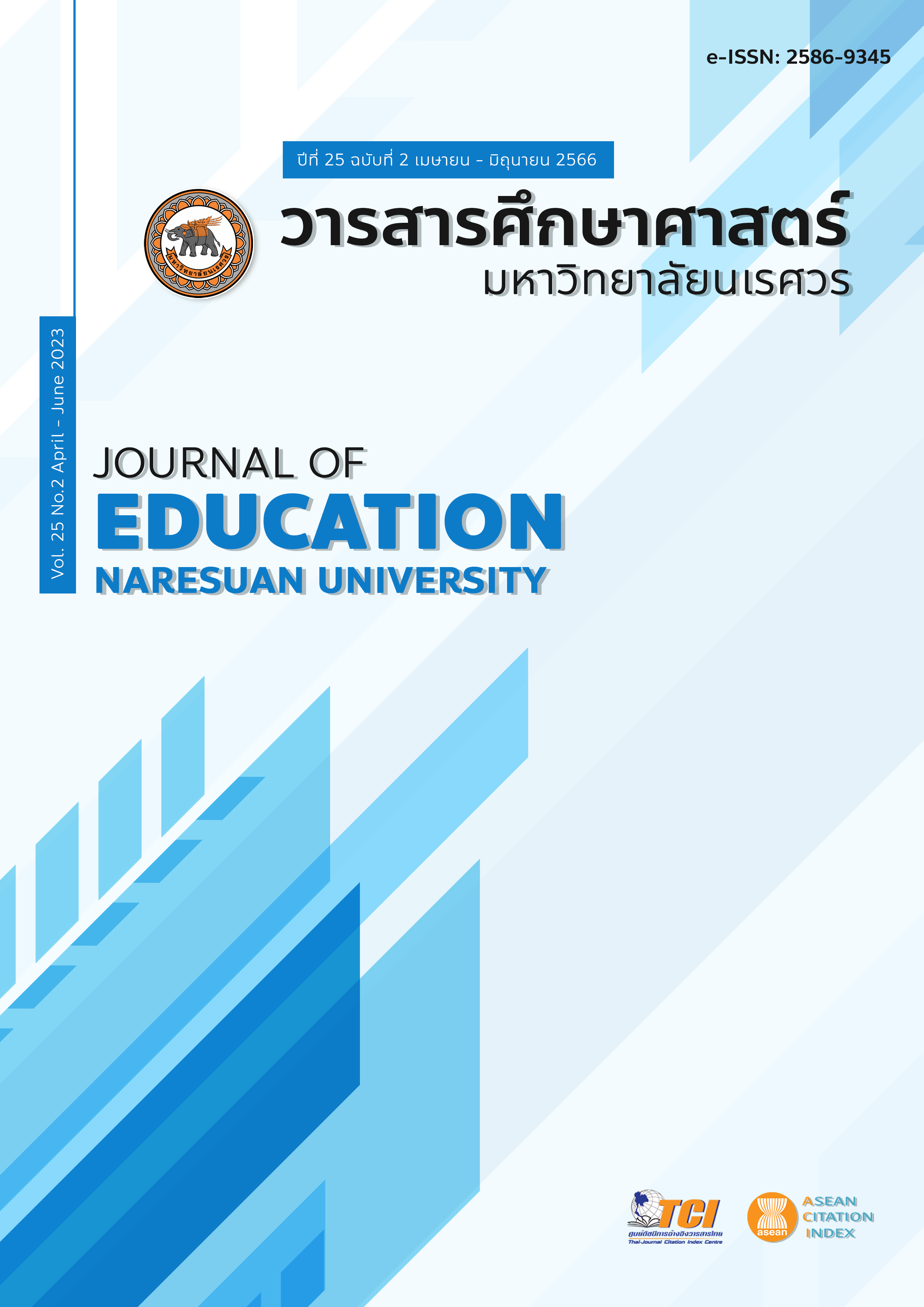THE FACTORS AFFECTING ON JAPANESE READING COMPREHENSION ABILITY OF JAPANESE MAJOR STUDENTS: CASE STUDY OF 4TH YEAR STUDENTS IN PUBLIC UNIVERSITIES ปัจจัยที่มีอิทธิพลต่อความสามารถในการอ่านภาษาญี่ปุ่นเพื่อความเข้าใจของนักศึกษากรณีศึกษา: นักศึกษาชั้นปีที่ 4 วิชาเอกภาษาญี่ปุ่น ในมหาวิทยาลัยของรัฐ
Main Article Content
Abstract
The purpose of the research was to study the factors affecting on Japanese Reading Comprehension ability of Japanese Major Students The sample was 138 in Japanese major students. The research instruments were the questionnaire on the factors affecting on Japanese Reading Comprehension ability and the tests on Japanese Reading Comprehension. The data were analyzed by percentage, mean, standard deviation, and stepwise multiple regression analysis. The findings showed the factors affecting on Japanese Reading Comprehension ability was significant at the 0.05 level, 4 positive were a grade point average (GPA) of student, a student’s attitude in reading class, a basic reading skill variable and a Japanese class environment. The 4 variables can be predicted the ability of Japanese Reading Comprehension for 33 level.
Article Details

This work is licensed under a Creative Commons Attribution-NonCommercial-NoDerivatives 4.0 International License.
The owner of the article does not copy or violate any of its copyright. If any copyright infringement occurs or prosecution, in any case, the Editorial Board is not involved in all the rights to the owner of the article to be performed.
References
Ajzen, I., & Fishbein, M. (1980). Understanding attitude and predicting social behavior. New Jersey: Prentice-Hall.
Aungtrakul, A. (2020). A comparative study of non-native Japanese learners’ and lecturers’ beliefs in Japanese reading. Journal of Humanities, Naresuan University, 17(1), 73-87. [in Thai]
Bloom, B. S. (1976). Human characteristic and school learning. New York: McGraw –Hill.
Callahan, J. F., & Clark, L. H. (1988). Teaching in the middle and secondary schools (3rd ed.). New York: Macmillan.
Chawengkijwanich, S. (2020). Problems in Japanese to Thai translation: Problems in sentence construction. Journal of Liberal Arts, Thammasat University, 20(1), 40-67. [in Thai]
Klinkesorn, P. (2015). Vocabulary learning strategies for Japanese language learners: A case study of Suan Sunandha Rajabhat University Students. Bangkok: Suan Sunandha Rajabhat University Students. [in Thai]
Kobayashi, K. (2004). Factors affecting phytotoxic activity of allelochemicals in soil. Weed Biology and Management, 4, 1-7. https://doi.org/10.1111/j.1445-6664.2003.00112.x
Mokhtari, K., & Sheorey, R. (2002). Measuring ESL students’ awareness of reading strategies. Journal of Developmental Education, 25(3), 2-11.
Pinnang, A., & Prachanban, P. (2020). Factors affecting being a learning person in the 21st century
of students at Naresuan University. Journal of Education Nareauan University, 22(2), 290-301. [in Thai]
Sawetaiyaram, T. (2010). Use of reading strategies by Thai learners of Japanese at different proficiency level. Japanese Studies Journal, 33(2), 81-96. [in Thai]
Smith, D. F. (1977). Effects of lithium on behavior: Critical analysis of a school of thought. Comprehensive Psychiatry, 18(15), 449–452. https://doi.org/10.1016/0010-440X(77)90043-8
Yamane, T. (1973). Statistics: An introductory analysis (3rd ed.). New York: Harper & Row.


